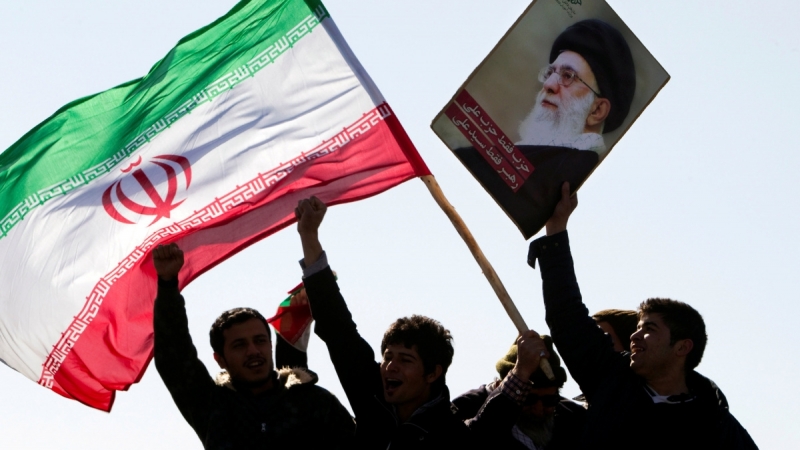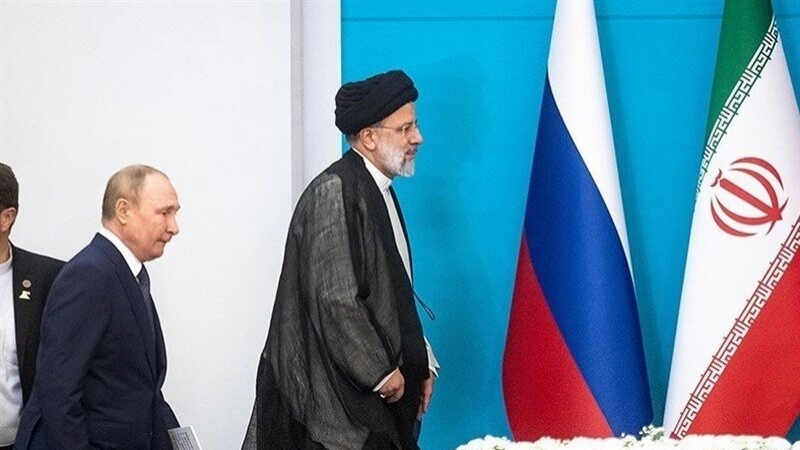Impact Of President Raeisi’s Martyrdom On Politics In Iran
Developing Just LeadershipTahir Mahmoud
Dhu al-Qa'dah 24, 1445 2024-06-01
News & Analysis
by Tahir Mahmoud (News & Analysis, Crescent International Vol. 54, No. 4, Dhu al-Qa'dah, 1445)

The tragic demise of Islamic Iran’s eighth president, Ebrahim Raeisi, along with those on board the helicopter with him, triggered a new storm of western “analysis”. This centered on the question of what will now happen in Iran.
From day one of the Islamic Revolution in 1979, western regimes and their media mouthpieces have been predicting doom and gloom. They have parrotted the line that the Islamic governing system will not last long. It is now 2024 (45 years later), but western propaganda strategy has not evolved; in fact, it has significantly regressed.
This time around, even the supposedly sophisticated western propaganda outlets were unable to present a more realistic assessment of the reality in Iran. The BBC, for instance, traditionally known for camouflaging propaganda in a more sophisticated manner, went for a lazy spin.
Explaining why millions in Iran came out en masse to mourn President Raeisi, the BBC’s “analytical” framing explained that this was the result of government sending text messages to people to publicly mourn the deceased president! This sophomoric explanation assumed that the government has cell phone numbers of everyone in Iran; that there is an army of people involved in sending such messages. That they did this in a matter of a few hours because once news of the deaths was confirmed on May 20, the first funeral ceremonies were held in Tabriz the following day. And finally, that people were pressured to participate.
Can anything be more absurd than that? How can people be pressured into attending funeral services, if they do not want to? Surely, there was no record of who attended and who did not. Only the warped western minds can come up with such drivel.
Lack of a more realistic assessment of Iran clearly shows that western regimes have lost hope in influencing Iran’s internal political landscape. Anti-Iran propaganda is now geared mainly towards their local audiences in the west. Most are poorly informed about West Asia and foreign policy issues.
Let us look at some deeper aspects of Islamic Iran’s internal political mechanisms. This will shed light on why certain developments will occur and others will not. A serious study of the Islamic movement in Iran shows its multifaceted nature.
From the onset of the Islamic Revolution, the presence of high calibre people like Ayatullah Morteza Motahhari, Ayatullah Hussein Beheshti and Ali Shariati showed the movement’s intellectual diversity and richness. The first two were martyred by the munafiqeen soon after the revolution while Shariati was poisoned by the Shah’s agents in London in 1977.
True, Motahhari and Shariati, two of the towering personalities in Iran’s rich intellectual tradition, had some disagreements. However, the organizational culture and intellectual framework of the Islamic movement in Iran was mature and sophisticated enough to channel Shariati and Motahhari’s ideas and their followers towards the broader objectives of the Islamic project.
One of the main reasons why Iran can accommodate diverse socio-political groupings and trends is because elections play a vital role in its politics. There are robust electoral mechanisms. These have deep grassroots and are part of Iran’s political culture. The arrogant western regimes fail to or tefuse to understand this political culture.
Islamic Iran’s system was able to accommodate politicians with such diverse outlooks as Mohammed Khatami, Ayatullah Hashemi Rafsanjani and Mahmoud Ahmedinejad. Contemporary western secular political narratives are simply too pedestrian to map-out Iran’s socio-political landscape accurately.
Crescent International is certainly not going to do this work for lazy imperialist institutions, but it will provide some examples so that readers can have a better overview of Iran’s political depth.
Western regimes often frame Iran within their simplistic left-right or reformist-conservative dichotomy. Such formulation is too shallow to explain Iran’s sophisticated Islamic political model.
For example, one of the key adversaries of Islamic Iran inside the country is the network of Ayatullah Sadiq Shirazi. This network is quite well organized and tolerated provided it remains within Islamic redlines.
This is the case in all political systems.
In the US, for instance, movements like Black Lives Matter are tolerated, but forces like the Black Panthers or more recently African People’s Socialist Party are not. This because the latter are seen as crossing the American system’s red lines.
The presence of political figures like Ali Motahhari in Iran is another example that trying to understand Islamic Iran via the western lens is not helpful.
The Iranian political system is underpinned by institutions. These institutions interact and compete for political power, as in all system-based countries, but in Iran it is not for the sake of power itself. They compete on how best to keep the Islamic system in place. Western regimes do not understand the mechanics of this process. Thus, they resort to crude, inaccurate and self-serving assertions.
Let us return to the central question: What impact will the tragic death of President Raeisi and his companions have on Iran? In line with the doctrine of the resistance economy, increasing domestic manufacturing capabilities to boost productivity is likely to remain the primary focus of any future administration.
Economic war on Iran remains the primary internal and external problem.
Another key impact will be the likely emergence of younger cadre in the future presidential administration.
The tragedy brought to the fore that human lives are fragile and there needs to be a reserve of competent and dedicated Islamic cadre. Thus, it would not be surprising to see the promotion of younger officials into positions of power and responsibilities.
With global economic power shifting away from the west, any future administration is likely to position its personnel towards working with Asia and Africa. Regionalization of trade is likely to continue to be one of the key priorities.
Instability that Washington and other disrupters are hoping for is unlikely to happen. Iranians understand that those who preach “democracy” while supporting dictators and genocide, simply want to turn Iran into another Libya. Nothing reflected this realization of the Iranians better than the mass public presence mourning President Raeisi.
Considering that apartheid Israel has been politically, militarily, and economically cornered, whoever becomes the next president is likely to continue enhancing the capabilities of the Axis of Resistance.
Once another peaceful transition of power takes place after the upcoming presidential elections, the institutionalization of the system will be furthered cemented.
Western regimes are hoping that once the Rahbar (Iran’s Guardian Jurist), Imam Sayyed Khamenei passes away, the Islamic system will experience a shock followed by a power vacuum and internal chaos.
The upcoming presidential elections are going to act as a rehearsal of smooth institutionalized transition of power. Such transition will once again confirm that there is no real alternative to the region’s only working Islamic governance model in power in Iran.
“And [remember, O Prophet], how those who were in denial [of Allah’s power] were scheming against you, in order to restrain you [from publicizing Islam], or to kill you, or to expel you [from their dominion]: thus, have they [always] schemed. But Allah brought their scheming to naught — for Allah is the best of planners” ((The Ascendant Qur’an, Surat Al-Anfal: verse 30).




